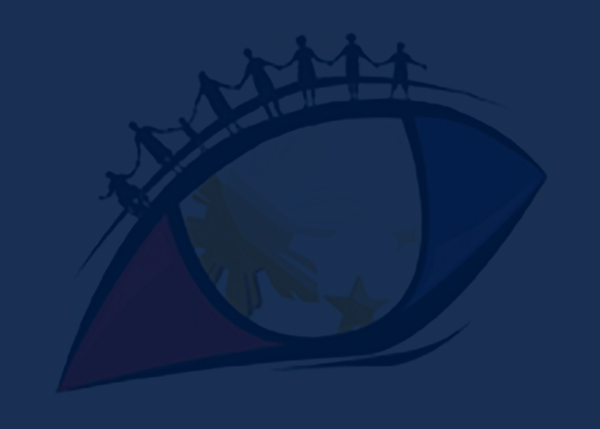by Paco Pangalangan originally published in Philstar.com
The last year has been a tough one for democracies. According to Freedom House’s Freedom in the World Report, it is the 15th consecutive year of decline in global freedom.
Another recent report from the International Institute of Democracy and Electoral Assistance noted that the number of countries moving in an authoritarian direction outnumbered those going in a democratic direction.
According to Freedom House, even countries posed to make democratic gains saw democracy decline. In Hong Kong, Beijing imposed harsh new restrictions, revamped the electoral process, and delayed elections to rein in pro-democracy protests.
In Belarus, Alexander Lukashenko retained power after fraudulent elections and jailing thousands of protesters. Now, Belarusian authorities are even proposing amendments to their constitution to allow the authoritarian leader to remain in office until 2035.
The US too dropped in Freedom House’s ranking, enough to place it among the 25 countries that suffered the largest decline in the past decade. This trend is perhaps what prompted US President Joe Biden to call democracy the “defining challenge of our time” during the recent virtual Summit of Democracy.
Historically, regression towards autocracy like this is triggered by coups or election-day fraud. However, what makes what’s happening now different is that duly elected incumbents are driving the decline in the democracy we are seeing today.
This decline, or democratic backsliding, is caused by the state-led weakening of democratic institutions that traditionally sustain the democratic system, such as horizontal checks and balances and fundamental rights, such as freedom of expression and access to information.
Undoubtedly, one factor that has exacerbated the recent democratic backsliding is the COVID-19 pandemic. The pandemic exposed weaknesses across democratic pillars, such as the rule of law, freedom of movement, and transparency and accountability.
For instance, in El Salvador, the government used police and military troops to enforce a harsh lockdown and forcibly confine thousands of people for alleged violations of movement restrictions.
Here in the Philippines, we’ve seen democratic backsliding deepen through increased militarization of the pandemic response, prolonged mobility restrictions and the assault on press freedom. Furthermore, a draconian Anti-terrorism law was also recently passed that UN human rights chief Michelle Bachelet warned could blur the distinction between criticism and criminality.
One of the reasons we may see democracy on the decline globally is that society is becoming increasingly polarized. In their book entitled “Backsliding: Democratic Regress in the Contemporary World”, Stephan Haggard and Robert Kaufman write that the effects of polarization are one of the causal mechanisms leading to declining democracy.
Haggard argues that political polarization divides electorates and leads them to permit certain actions on the part of their leaders. “Societies can polarize in a variety of different ways, but what really counts is the devolution in thinking about the opposition, from being a group that is essentially loyal but different, to one that is an enemy, that’s traitorous, that’s opposed to the interests of the nation.”
Here in the Philippines, we see the use of polarizing rhetoric very much at play. By eloquently weaving in populist messages with opaque labels like dilawan, communists, oligarchs, or biased media, the Duterte administration has effectively been able to build on an “us vs. them” narrative for going on six years.
Undoubtedly, disinformation on social media has also played a significant role in Filipino’s political polarization. Stratbase ADRi President Dindo Manhit recently wrote that “disinformation is an insidious instrument that deprives people of their right to credible information. It dispossesses them and diverts their attention from pressing public issues.”
As we approach the 2022 presidential elections, bad actors will undoubtedly use disinformation to polarize, distract and deceive Filipino voters. In fact, according to VERA Files Fact Check, a third-party fact-checking partner of Meta, over a third of the viral online posts it debunked this year were related to the upcoming elections.
According to the VERA files report, the majority of the debunked content either promoted Bong-bong Marcos Jr. or distorted facts about his family’s ill-gotten wealth cases and the atrocities committed under his father’s administration, the late dictator Ferdinand Marcos Sr. The analysis further showed that the debunked content also benefited his running mate Davao City Mayor Sara Duterte-Carpio, and her father, President Rodrigo Duterte.
With the rise of social media, polarization is increasingly playing out online rather than on the streets. Hence, cleaning up social media is a crucial part of stopping democracy’s backward slide.
This effort, however, Haggard argues, will not only require the cooperation of both the government and private sector but also of “a new kind” of non-governmental organization. This new breed of NGOs, he said, must focus on revealing those that try to weaken our political institutions and polarize our politics.
Left unchecked, these authoritarian and polarizing tactics will persist, democratic backsliding will continue, and the Philippines will gradually spiral back towards an autocratic regime. At the same time, however, the very same hyperconnectivity that has exposed us to polarizing disinformation online also offers us a way to fight back and strengthen democratic institutions.
It is not too late for individuals and civil society groups to come together to combat these paid troll armies whose only goal is to distract us from the real issues. But to effectively do so, we have to dispense with the labels and look past party colors.
Instead, we must all develop a critical mindset to discern disinformation from the truth. We must also be champions of facts and fact-based discussions of issues that matter, such as combating corruption and economic recovery. Furthermore, civil society must transform itself and its tactics to respond to these evolving challenges.
Indeed, the May 2022 election will be an inflection point for Philippine democracy. What we decide to do between now and then can potentially determine the direction our country will take in the coming decades.

